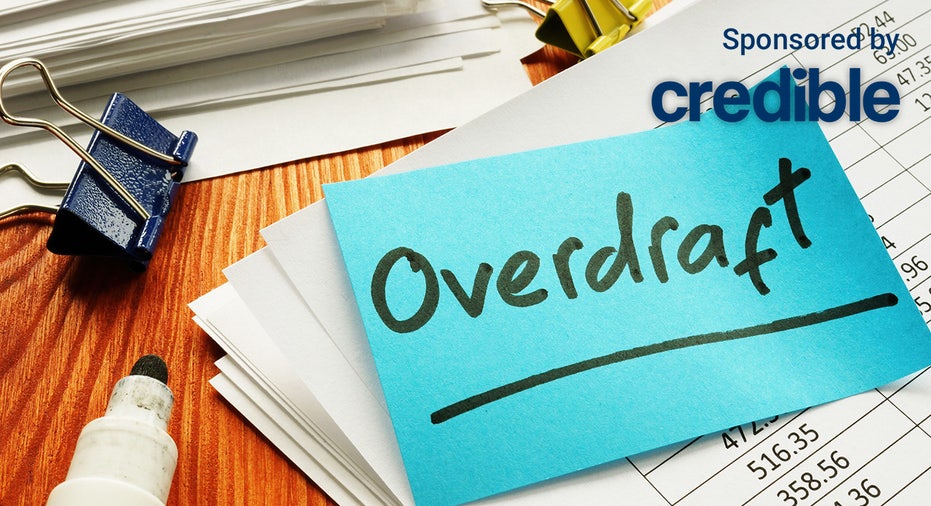Bill to limit overdraft fees sent to House of Representatives
The Overdraft Protection Act would limit how frequently fees are charged

Congress is considering a bill that would reduce banks' ability to charge overdraft fees. (iStock)
The U.S. House Committee on Financial Services voted to send a bill to the full House of Representatives that would prevent banks from charging too many overdraft fees.
The Overdraft Protection Act (H.R. 4277), authored by Rep. Carolyn Maloney, D-N.Y., stated that overdraft coverage for a fee has become more prevalent with the increased usage of debit cards.
"Many financial institutions market a range of overdraft options but aggressively encourage consumers to consent to the most expensive option, where a high flat fee is collected for every individual overdraft transaction," the bill said.
The bill states that each time a financial institution covers an overdraft, it charges an overdraft coverage fee. This can include multiple fees in one day or additional overdraft fees each day the account remains overdrawn. It said these "abusive practices" deprive consumers of financial options.
"It is the purpose of this Act to protect consumers by limiting abusive overdraft coverage fees and practices, and by providing meaningful disclosures and consumer choice in connection with overdraft coverage fees," the bill said.
If you are struggling to pay off debt, you could consider using a personal loan to consolidate your payments at a lower interest rate, saving you money each month. Visit Credible to find your personalized interest rate without affecting your credit score.
LEGISLATORS SUPPORT BANK-LED END TO OVERDRAFT FEES
Consumer groups encourage House to pass bill
As the bill moves to the full House of Representatives for consideration, some consumer groups have applauded the committee's efforts and encouraged the House to pass it.
"We applaud Congresswoman Maloney and the House Financial Services Committee on passing this critical legislation that will protect consumers from abusive overdraft fees," Rachel Gittleman, the Consumer Federation of America's (CFA) financial services outreach manager, said in a statement. "These fees are borne predominately by those who can least afford them and disproportionately fall on low-income consumers and consumers of color. Consumers cannot wait for banks to individually put an end to this practice – the cost is just too high."
Some banks have already begun to end overdraft and non-sufficient funds (NSF) fees on their own.
Bank of America, Capital One and Citibank are among those that have either eliminated or reduced these fees and have also implemented balance alerts for credit and debit card transactions to let consumers know when their available balance falls below a certain amount.
"We applaud Ally Bank, Bank of America, Capitol One, Citibank, and other banks that have either eliminated their overdraft fees or dramatically scaled them back in recent months. These banks’ overdraft fee reforms greatly benefit their customers," Nadine Chabrier, the Center for Responsible Lending's (CRL) senior policy counsel, said in a statement. "At the same time, many financial institutions continue abusive overdraft practices, and all consumers should have a baseline level of protection from this exploitation.
Chabrier also encouraged lawmakers to pass and send the bill to President Joe Biden.
If you are interested in paying down debt to improve your finances, you could consider using a personal loan to help you do so. Visit Credible to compare multiple lenders at once and choose the one with the best interest rate for you.
Expert says legislation is ‘misguided’
Although some groups have encouraged the House to pass this legislation, one expert called the overdraft bill "misguided," and warned of its potential impact on vulnerable consumers.
"Today’s passage of the Overdraft ‘Protection’ Act in the House Financial Services Committee will harm vulnerable consumers in need of emergency financing – making it more difficult to cover unexpected expenses between paychecks," Lindsey Johnson, Consumer Bankers Association (CBA) president and CEO, said in a statement. "This outdated legislation disregards years of bank-led, consumer-driven innovation and will take away a financial safety net many families count on in times of need.
"Lawmakers understand the harmful consequences of this legislation, and it is our hope they will reject any further efforts to advance this misguided proposal and instead encourage more of the innovation banks are already delivering customers in every community they serve," Johnson said.
If you are struggling financially, you could consider taking out a personal loan to help you pay down debt and save money each month. To see if this is the right option for you, contact Credible to speak to a personal loan expert and get all of your questions answered.
Have a finance-related question, but don't know who to ask? Email The Credible Money Expert at moneyexpert@credible.com and your question might be answered by Credible in our Money Expert column.




















